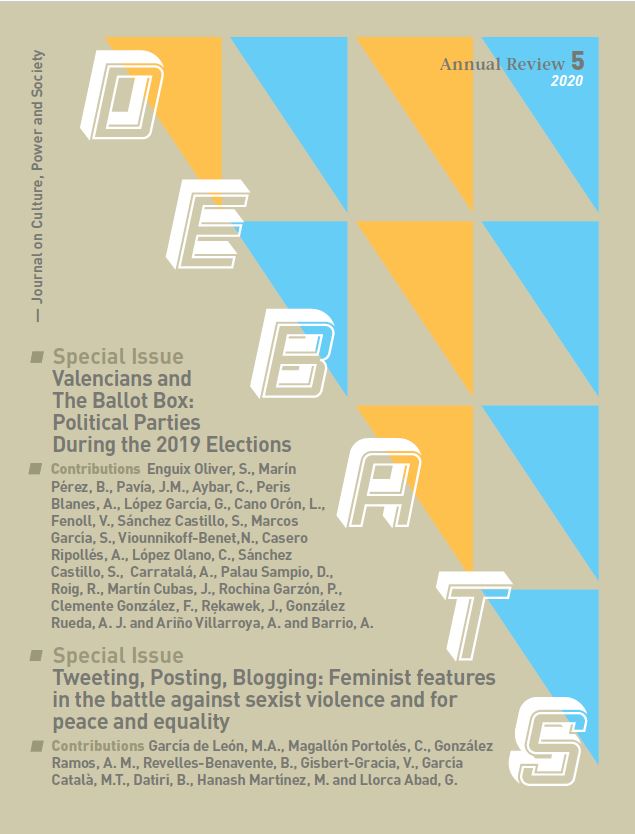Big Data Analysis of the #BringBackOurGirls Cyber-Campaign
DOI:
https://doi.org/10.28939/iam.debats-en.2020-15Palabras clave:
hashtag, #BringBackOurGirls, Boko Haram, Chibok, Jihadism, Africa.Resumen
We used a web tool to extract Twitter API data on the #BringBackOurGirls campaign. The Twitter hashtag was used for a campaign denouncing the kidnapping of 276 schoolgirls in Chibok, Nigeria on the 14th of April 2014 by the Jihadist group Boko Haram. The data extracted covered the period spanning from the creation of the campaign (19th of May 2014) to the 16th of May 2019. The data were anonymous because they were provided in aggregate form, covering things such as: the number, content, and chronology of tweets; information on geographical area; the relevance of the users making comments; information on followers; the impact of tweets; ‘likes’; re-tweets; demographic profiles (gender); keyword information. These indications were provided in the form of mass, open data by Twitter’s API. The data was ordered and analysed by the research team during the course of the qualitative study to shed light on the cyber-campaign.
Descargas
Citas
Banco de datos mundial. (2019). [Accessed: 11th October 2019]. https://datos.bancomundial.org/
Celso, A. N. (2015). The Islamic State and Boko Haram: Fifth Wave Jihadist Terror Groups. Orbis, 59, 249-268. DOI: http://doi.org/10.1016/j.orbis.2015.02.010
La, Hien and Pickett, S. (2019). Framing Boko Haram’s Female Suicide Bombers in Mass Media: An Analysis of News Articles post-Chibok abduction. Critical Studies on Terrorism, 12(3), 512-532. DOI: http://doi.org/10.1080/17539153.2019.1599530
Nganji, J. T. and Cockburn, L. (2019). Use of Twitter in the Cameroon Anglophone Crisis. Behaviour & Information Technology, 39 (3). DOI: http://doi.org/10.1080/0144929X.2019.1620333
Oriola, T. B. (2017). “Unwilling Cocoons”: Boko Haram’s War Against Women. Studies in Conflict & Terrorism, 40(2),99-121. DOI: http://doi.org/10.1080/1057610X.2016.1177998
Descargas
Publicado
Cómo citar
Número
Sección
Licencia
Sin perjuicio de lo dispuesto en el artículo 52 de la Ley 22/1987 de 11 de noviembre de Propiedad Intelectual, BOE del 17 de noviembre de 1987, y conforme al mismo, los autores o autoras ceden a título gratuito sus derechos de edición, publicación, distribución y venta sobre el artículo, para que sea publicado en Debats. Revista de cultura, poder y sociedad.
Debats. Revista de cultura, poder y sociedad se publica bajo el sistema de licencias Creative Commons según la modalidad «Reconocimiento - NoComercial (by-nc): Se permite la generación de obras derivadas siempre que no se haga un uso comercial. Tampoco se puede utilizar la obra original con finalidades comerciales».
Así, cuando el autor o autora envía su colaboración, acepta explícitamente esta cesión de derechos de edición y de publicación. Igualmente autoriza a Debats. Revista de cultura, poder y sociedad, la inclusión de su trabajo en un fascículo de la revista para que se pueda distribuir y vender.











